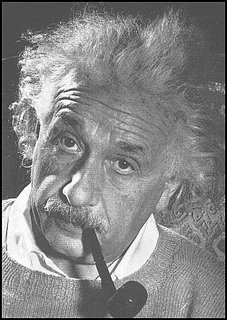The Shack - William P. Young

"The Shack," came highly recommended by someone who assured me it was a 'transformational' book. So, I approached it with enthusiasm.
It isn't a bad story but it certainly will not rise above its contemporaries as one of the preeminent books of our time. Regardless, I am sure it 'speaks' to certain people who may find their lives in turmoil as they seek to make sense of suffering and pain. While the story offered potential insight as to the 'thinking' or mindset of a deity, I did not come away completely convinced with the book's overall message.
Even so, I was sufficiently impressed with the story line that I abandoned all other reading (I usually have five to seven books going at any given time) and devoted all my reading time to this one story.
Aside
One of my pastimes is to update my reading list - a recent obsession - at a website called, 'Goodreads.' One feature includes reader ratings on a scale ranging from one star to five stars.
Review
This book received a 2-star rating from me - not that it should mean anything to you - this is merely my arbitrary assessment of where the book ranks in relation to others I have read. In other words, it gets a "D" rating on an "A" through "F" scale.
Part of the low rating is because this variety of religious mythology attempts to color religiocentric beliefs with anthropomorphism. Its been done before. if this were a meal, I would describe it as under-prepared and overcooked - the religious equivalent of a fast food gourmet burger.
It seemed like the book's ultimate goal was to proselytize. Its global approach with descriptions invoking the Christian Trinity as the godhead as its central theme seemed a bit disingenuous because it made a grab for all of the world's great religions and lumped them all into the Christian description of the diety. William Young cast such a broad net that all this book lacked was a little new-age crystals to be tossed in the mix as a means of pandering to the subset of New Age spiritual seekers searching for the meaning of life as well.
I suppose this is what happens when one is, '...raised among a stone-age tribe by his missionary parents in the highlands of what was New Guinea." This revelation sits at the bottom of the book's back cover. Ahh G_d bless those 'fishers of men' who bring the word of salvation to ignorant 'uncivilized' people in the world. I suppose it explains the usage of the universal net; you catch more 'fish' that way. There is a certain arrogance about it when one group of people looks upon another and decides it is in the 'inferior' group's best interest to be changed.
It reminds me of Mohandas Gandhi's quote, "I like your Christ. I do not like his followers." I think he might have at least been referring in part to the 'bait and switch' conversion approach.
The book started off slow and a bit clumsy with token foreshadowing. However, the story was engaging and entertaining in exploring Humanity's relationship with the universal god most familiar to Christians.
It did so following a fantastic story line; a grieving man got to spend three days with G_d in the shack - apparently for dramatic effect - where the last evidence of his missing daughter bloody dress was discovered after her disappearance/abduction while on a camping trip some four years prior. The three-day encounter serves to lift what is referred to as a 'Great sadness' from the man who doesn't necessarily come to understand the 'why' behind Human suffering but he realizes the promise if faith as an afterlife is revealed because of the contact with Human representations of the creator of the universe.
The dialogue was engaging and thought-provoking. I found it to be enjoyable because it provided insights and perspectives I hadn't recently really given much thought to in quite some time. I looked forward to picking up the book because, while the book had obviously religious overtones, it was not immersed in scripture. Thus, its message seemed more fresh - less regimented.
Foreshadowing was clumsily weaved in the introduction thereby diminishing the story's profound and fantastic claim. The set-up was unnecessary and only served to detract from the body of work which easily stood on its own. It didn't require - at least in my opinion - any sort of preemptive discussion. I should have skipped it altogether.
While the book doesn't make any claims other than to offer that an unbelievable story awaits, it does have a definite agenda of religious conversion in mind. It became eminently clear at the end of the book in the post-script; where a hefty bit of promotion for the book followed with suggestions and offerings by way of websites created solely for discussion of the book itself, encouragement for advertising by word of mouth, blogging, offers for mass purchases of the book and encouragement for participation in discussion groups like "The Missy Project" etc. The author even offered his availability to be scheduled for paid public appearances ostensibly to discuss the book with the author - for a price - oh bother. All this to bring people into the Protestant fold of Christianity.
The entire post-script smacks of a marketing gimmickry and thus lost some credibility with me because of it. I cannot imaging C.S. Lewis subjecting his craft to such proselytizing, promotion and marketing. Like the television evangelism and the rise of mega-churches, this book smells of old fish in a new wrapper - like Rick Warren's much vaunted, 'Purpose Driven Life'.
To my way of thinking, this book is a call to action for believers to deliver the Christian message of salvation once the story has been told - not during, but after the story's completion- when the author's agenda is revealed in the post-script.
'The Shack' is a good enough read however, I think I would direct my fellow readers to forgo spending money the book and go to a local library to check it out instead. It certainly falls short in comparison to great spiritual thinkers like St. Augustine, or St. John of the Cross or contemporary writers like C.S. Lewis and Forrest Church.
Abraham Lincoln once said something like, "This is a great book for for those people who like this kind of book." That is a fair assessment for "The Shack" because it revisits some of the imponderables and basically preaches to the proverbial choir - the religious following of G_d the father, Son and Holy Spirit.
While I admire Young's faith and the creative effort that went into this convoluted yet simple story, it reminds me of a Protestant convert to Catholicism who eventually rose to the level of Cardinal, John Newman who said - regarding faith - nearly a century ago; "For those who have believe, no explanation is necessary - for those who do not, no explanation will suffice." I am paraphrasing here but I think the spirit of his words has been captured nonetheless.
I am not here to challenge anyone's faith. All I am saying is this book is not a keeper for me. Moreover, just because a book has G_d as the subject, doesn't necessarily make it a 'good' book (worthy of G_d).




1 Comments:
I've not read this and in all honesty I wouldn't have read it either. But the information you have shared about the self promotion is a complete turn off -
Post a Comment
<< Home